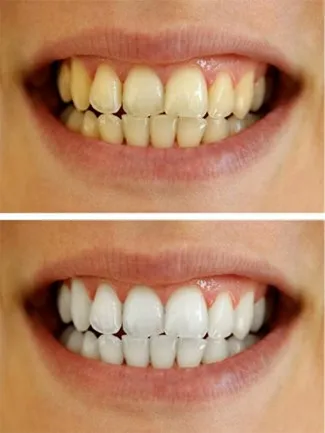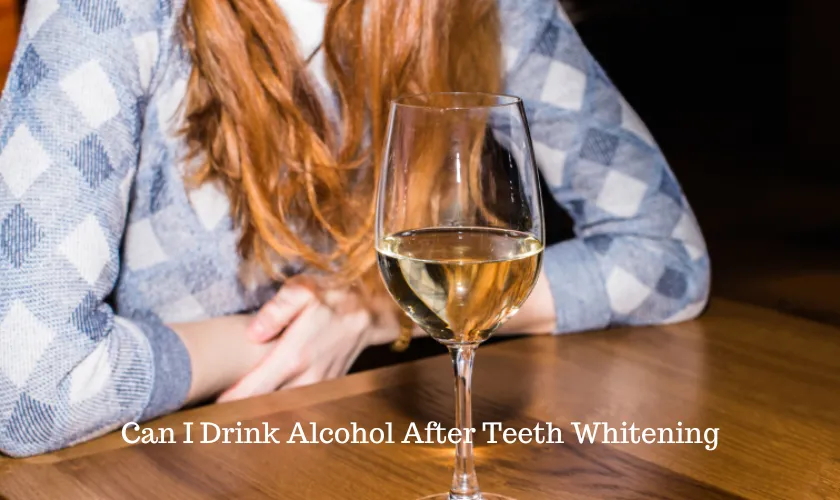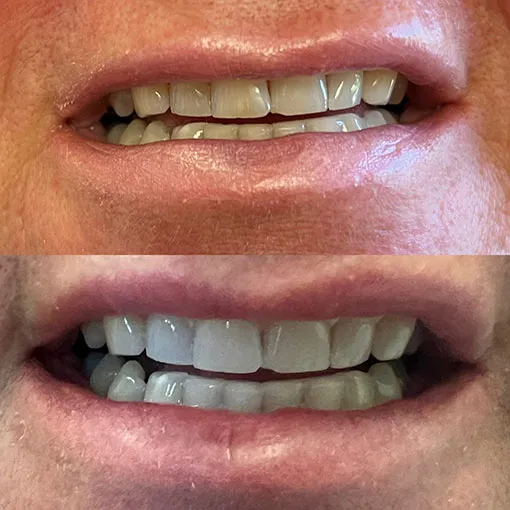The Perils of Alcohol After Teeth Whitening
Teeth whitening is a popular cosmetic procedure, promising a brighter, more confident smile. However, the effectiveness and longevity of these treatments can be significantly impacted by post-procedure habits, with alcohol consumption being a primary concern. Understanding the risks associated with drinking alcohol after teeth whitening is crucial for anyone seeking to maintain their investment and protect their oral health. This article delves into the top 5 risks of consuming alcohol after teeth whitening, providing a comprehensive guide to safeguard your newly whitened teeth and overall well-being. From increased sensitivity to compromised whitening results, we’ll explore why abstaining from alcohol is a critical component of successful teeth whitening.
Why Alcohol Undermines Teeth Whitening
The Role of Enamel and Whitening

Teeth whitening treatments work by penetrating the enamel, the outermost layer of your teeth, to break down stain molecules. The process typically involves the use of peroxide-based products that oxidize the stains. After whitening, the enamel is more porous and susceptible to staining because the pores in the enamel are temporarily open. This makes the teeth vulnerable to absorbing color from anything you consume, including alcohol. The effectiveness of the whitening process heavily relies on the integrity and condition of the enamel, thus the initial period after the procedure is crucial for maintaining the results.
Alcohol’s Effect on Enamel
Alcohol, especially in its darker forms, can directly stain the teeth. Beyond the staining effect, alcohol can also erode the enamel over time. Alcohol has an acidic nature and can contribute to enamel erosion, making the teeth more vulnerable to stains and decay. This acidic environment created by alcohol consumption can also disrupt the natural remineralization process, hindering the enamel’s ability to repair itself. This not only affects the aesthetics of your teeth but also compromises their structural integrity, leading to increased sensitivity and a higher risk of dental problems.
Increased Sensitivity
One of the most immediate side effects of consuming alcohol after teeth whitening is increased tooth sensitivity. This discomfort can range from mild twinges to sharp pains, especially when consuming hot or cold beverages. The whitening process itself can temporarily make your teeth more sensitive, and alcohol can exacerbate this condition. This is due to the increased porosity of the enamel and the potential for alcohol to irritate the underlying layers of the tooth.
Why Alcohol Increases Sensitivity

Alcohol can amplify tooth sensitivity due to its chemical properties and its interaction with the enamel. The alcohol can penetrate the pores in the enamel, reaching the dentin layer, which contains nerve endings. This direct contact can trigger pain and sensitivity. Additionally, some alcoholic beverages contain high acidity levels, further irritating the teeth. This combination of increased porosity, direct contact, and acidity creates a perfect storm for heightened sensitivity, making it unpleasant to eat or drink anything for a period of time after consuming alcohol.
How to Manage Sensitivity
If you experience sensitivity, there are several strategies to alleviate the discomfort. Using toothpaste designed for sensitive teeth can help. These toothpastes often contain ingredients like potassium nitrate, which help block pain signals to the nerves in your teeth. Avoid extremely hot or cold foods and drinks, as these can trigger sensitivity. Over-the-counter pain relievers, such as ibuprofen, can also provide temporary relief. Consult your dentist if sensitivity persists or worsens; they may recommend fluoride treatments or other interventions to strengthen your enamel.
Staining and Discoloration Risks
Perhaps the most obvious risk of alcohol consumption after teeth whitening is the potential for staining and discoloration. Alcoholic beverages, particularly red wine, dark beers, and cocktails, contain chromogens, which are color pigments that can easily adhere to the porous enamel. Because your teeth are more vulnerable to staining immediately after whitening, the risk of these pigments absorbing into the enamel is significantly higher. This can undo the results of the whitening treatment, leaving you with stained teeth and wasted money.
The Mechanism of Staining

The staining process begins as soon as chromogens come into contact with the teeth. These pigments seep into the porous enamel and become trapped, leading to discoloration. The darker the beverage and the longer the contact time, the more intense the staining can be. Even if you drink alcohol quickly, the initial impact can still cause some staining. Moreover, the presence of tannins in some alcoholic drinks can increase their staining potential. These tannins help the chromogens bind more effectively to the teeth, making the staining even more noticeable.
Foods and Drinks to Avoid
In addition to avoiding alcohol, it is important to be mindful of other foods and drinks that can stain your teeth. Coffee, tea, dark sodas, and certain fruit juices (such as cranberry and grape juice) should be limited or avoided. Foods with strong colors, like berries, soy sauce, and curries, can also contribute to staining. If you must consume these items, do so in moderation and rinse your mouth with water afterward. Consider using a straw to minimize contact with your teeth when drinking potentially staining beverages.
Gum Irritation
Alcohol can also lead to gum irritation and inflammation. The high alcohol content can be harsh on the delicate tissues of the mouth, causing irritation, redness, and even bleeding gums. If your gums are already sensitive from the teeth whitening procedure, alcohol can further exacerbate these issues. This can not only be uncomfortable but also increase the risk of gum disease and other oral health problems.
Alcohol and Gum Health

Alcohol can disrupt the natural balance of bacteria in the mouth. Excessive alcohol consumption can lead to a decrease in saliva production, which is essential for washing away bacteria and neutralizing acids. This can create an environment where harmful bacteria thrive, increasing the risk of gum disease and other oral infections. Alcohol also impairs the immune system, making it more difficult for your body to fight off infections, further damaging your gum health.
Preventing Gum Problems
To protect your gums, it’s important to maintain good oral hygiene practices. Brush your teeth gently at least twice a day with a soft-bristled toothbrush and floss daily to remove plaque and food particles. Rinse your mouth with water after consuming alcohol or sugary drinks. Regular dental check-ups and professional cleanings are also crucial for maintaining healthy gums. Your dentist can identify and treat any early signs of gum disease, preventing it from progressing.
Dry Mouth and Its Consequences
Alcohol is a diuretic, meaning it increases urine production, which can lead to dehydration throughout the body, including the mouth. Dry mouth, or xerostomia, is a common side effect of alcohol consumption, which can cause several problems. Saliva is essential for protecting your teeth from decay and washing away food particles. When saliva production decreases, your teeth become more vulnerable to cavities and other dental issues.
How Alcohol Causes Dry Mouth

Alcohol inhibits the release of antidiuretic hormone (ADH), which signals the kidneys to reabsorb water. As a result, the body loses more fluids, leading to dehydration. This dehydration affects the salivary glands, reducing saliva production. The reduced saliva flow not only dries out the mouth but also diminishes the protective effects of saliva, increasing the risk of dental problems. This is why, after a night of drinking, you might wake up with a dry mouth and a higher risk of experiencing dental issues.
The Impact on Oral Bacteria
Saliva plays a crucial role in maintaining the balance of bacteria in your mouth. It washes away harmful bacteria and helps neutralize the acids produced by them. Dry mouth allows bacteria to thrive, increasing the risk of cavities, gum disease, and bad breath. Certain bacteria can also contribute to the buildup of plaque and tartar, further damaging your teeth and gums. Maintaining a healthy level of saliva is essential for a healthy mouth.
Tips for Maintaining Oral Hydration
To combat dry mouth, it’s important to stay hydrated. Drink plenty of water throughout the day, especially after consuming alcohol. Consider using a saliva substitute, which can provide temporary relief from dry mouth symptoms. Chewing sugar-free gum can stimulate saliva production. Avoid caffeine and alcohol, as both can have a diuretic effect and worsen dry mouth. Regular dental check-ups are also important; your dentist can identify any underlying causes of dry mouth and recommend appropriate treatments.
Compromised Whitening Results

Ultimately, the primary concern with alcohol consumption after teeth whitening is that it can compromise the results of the treatment. The goal of teeth whitening is to achieve a brighter, more aesthetically pleasing smile. However, if alcohol is consumed too soon after the procedure, it can counteract the whitening process by causing staining, enamel erosion, and increased sensitivity, reducing the overall effectiveness and longevity of the treatment. The time and money spent on whitening can be wasted if proper aftercare, including avoiding alcohol, is not followed.
Understanding the Whitening Process
Teeth whitening involves using bleaching agents to penetrate the enamel and break down stain molecules. After the procedure, the enamel is more porous, making it easier for substances to penetrate and stain the teeth. This vulnerability is why it is crucial to avoid anything that might stain the teeth during this period. Adhering to post-whitening instructions is essential to allow the enamel to remineralize and stabilize, ensuring optimal and long-lasting results.
How Alcohol Hinders Whitening
Alcohol, with its staining properties and potential for enamel erosion, directly hinders the whitening process. The chromogens in alcoholic beverages stain the porous enamel, counteracting the whitening effect. Alcohol’s acidity can further damage the enamel, making the teeth more susceptible to future staining. The combined effect can be a noticeable loss of brightness and an uneven appearance, which is why it is not recommended to consume alcohol right after the procedure.
Maximizing Whitening Outcomes
To maximize the results of your teeth whitening treatment, it is essential to follow the post-procedure instructions provided by your dentist. This typically includes avoiding alcohol, highly pigmented foods, and drinks for a specified period (usually 24-72 hours). Maintaining good oral hygiene, including brushing and flossing regularly, can also help preserve the results. Consider touch-up treatments or follow-up visits to your dentist to maintain the brightness of your smile. Following these guidelines will ensure that you enjoy a brighter smile for as long as possible.
